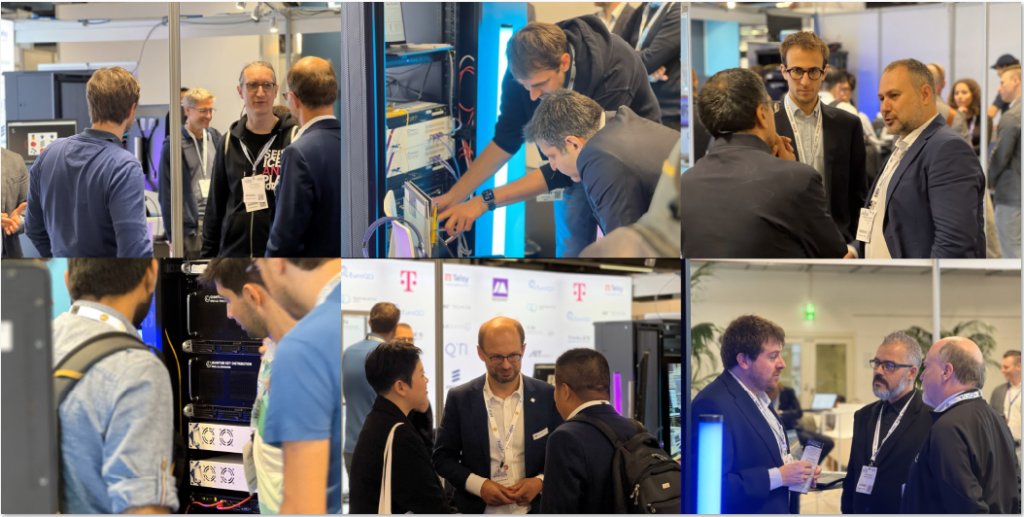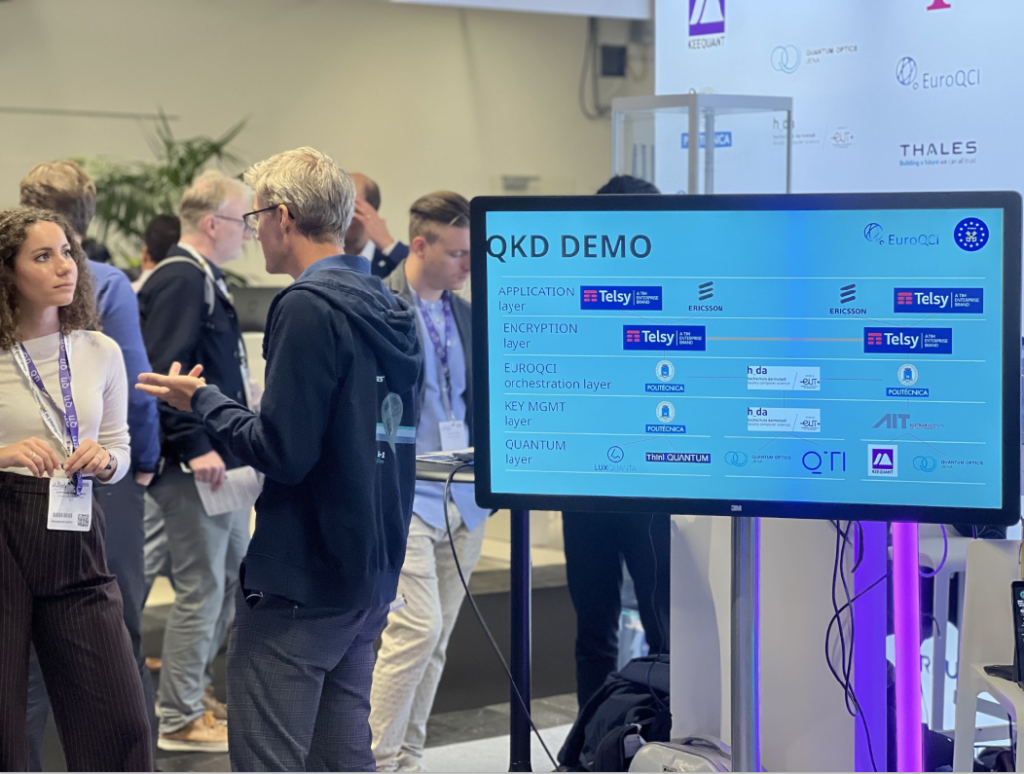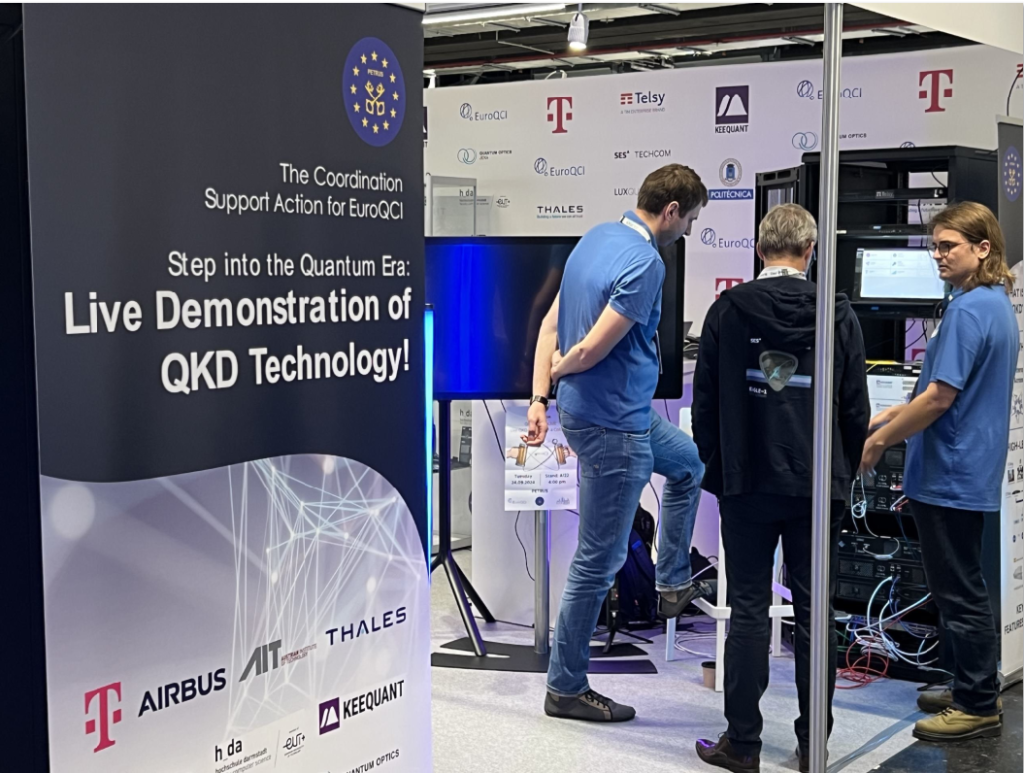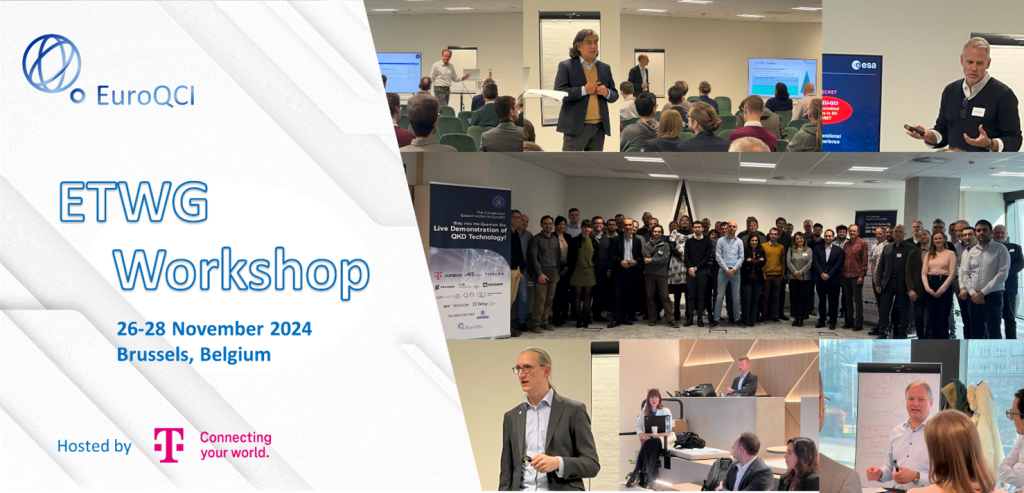
From the 26th to 28th November 2024, the EuroQCI Thematic Working Group (ETWG) workshop convened in Brussels, Belgium. Organised by PETRUS and hosted by Deutsche Telekom Global Business Belgium, this three-day event gathered various stakeholders of EuroQCI including the European Commission and Member State representatives and project to discuss European Quantum Communications Infrastructure (EuroQCI) .
The workshop provided a platform for attendees to receive updates on PETRUS and NOSTRADAMUS and the EuroQCI state of play; and workshops to engage in discussions on the future direction for EuroQCI, review of the roadmap, critical topics for national deployment, the Connecting Europe Facility (CEF) call for interconnecting Member States, review of decision support papers produced by the ETWG and to highlight key topics to be addressed to facilitate the implementation of EuroQCI.
The workshop provided valuable input into the EuroQCI initiative which is funded by the European Union to safeguard sensitive data and critical infrastructures by integrating quantum-based systems into existing communication infrastructures.
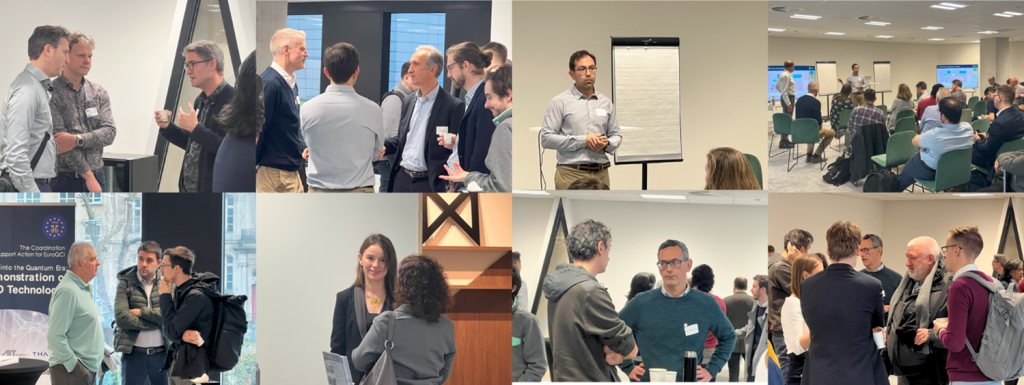
Opening Sessions and EuroQCI Overview
The workshop commenced with outlining the workshop process and objectives. This was followed by an update from the European Commission on the current state and future directions of EuroQCI, emphasizing the Security and Assurance for Government Applications (SAGA). The upcoming CEF call was then presented, highlighting key considerations for attendees.
An overview of the National QCI (NatQCI) based on recent surveys and PETRUS analysis was provided, setting the stage for an update on the NOSTRADAMUS project. The day concluded with a detailed discussion on the ETWG roadmap, outlining future key milestones, decision supports, and deliverables.
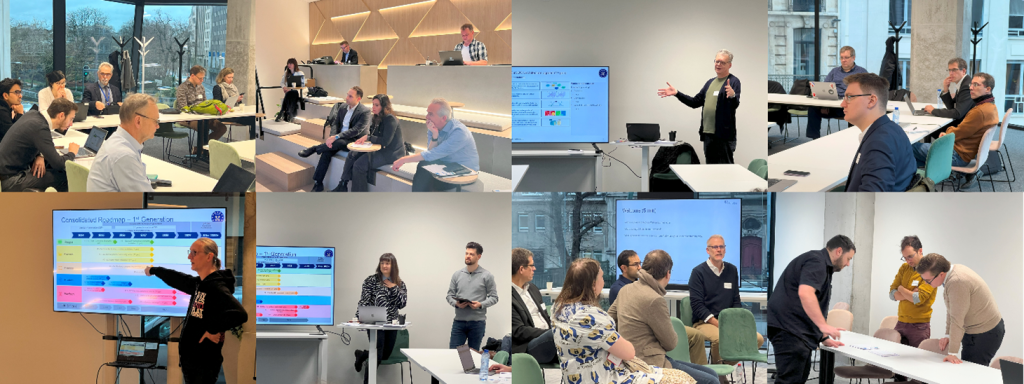
Parallel Sessions: Roadmaps and Interoperability
Day two featured a series of parallel sessions dedicated to different aspects of QCI. The sessions covered use case roadmaps, interoperability, landscape and architecture roadmaps, and product standards. The use case roadmap session reviewed current proposals, identified milestones, and discussed acceptance criteria. Interoperability, landscape roadmap, and architectural considerations were also explored in depth.
Expanding National QCI and Addressing Dependencies
The discussions on expanding the first generation of National QCI covered key dependencies, architectural options, technical applications, and risks. Insights into the steps and projects necessary to achieve EuroQCI 1st Generation were provided. This segment focused on aligning national efforts with broader EuroQCI objectives, ensuring a cohesive approach to the development and deployment of QCI across Europe.
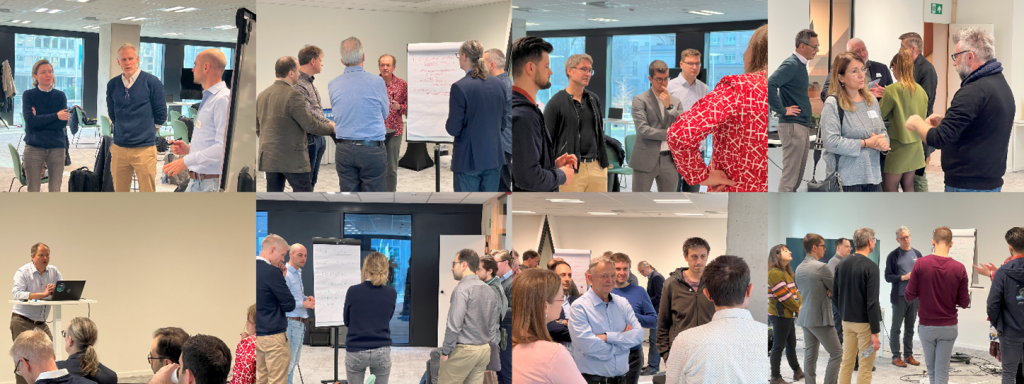
Industrial Projects, Feedback, and Future Directions
The final day began with an introduction, followed by update sessions on industrial projects. The focus then shifted to feedback sessions involving key participants. Key aspect sessions reviewed the National QCI roadmap, CEF, and considerations for national expansion. Discussions highlighted the importance of prioritization, addressing questions, and identifying issues. Feedback from these sessions was facilitated throughout the day.
Concluding Remarks and Roadmap for the Future
The workshop concluded with an open forum and closing remarks, highlighting the collaborative spirit and visionary goals of the event. Attendees left with a clearer understanding of the current state of quantum communication infrastructure (QCI) and a comprehensive roadmap for future developments. The forum fostered lively discussions and innovative ideas, ensuring that Europe remains at the forefront of QCI advancements. Participants departed with renewed focus and actionable insights to drive the next phase of quantum communication infrastructure.
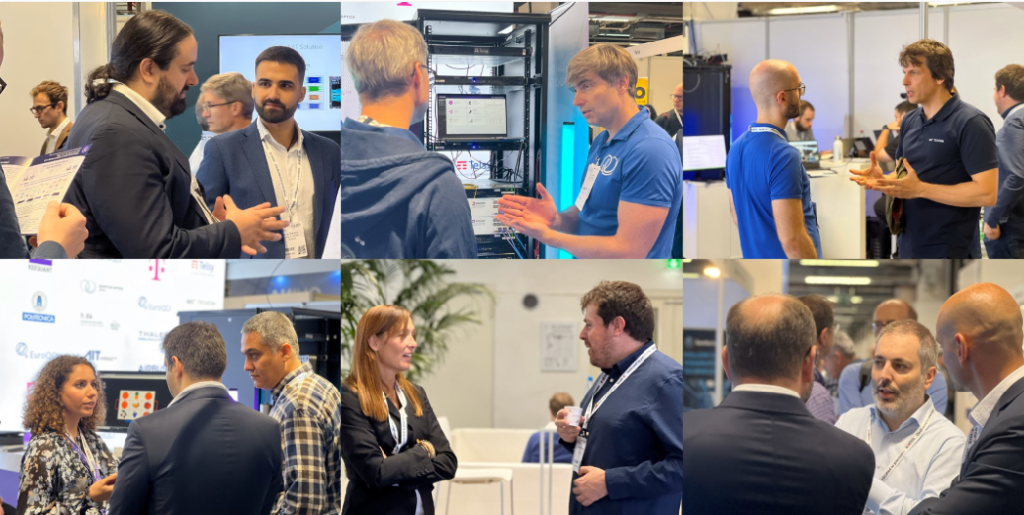
About the “Mini EuroQCI” Demo
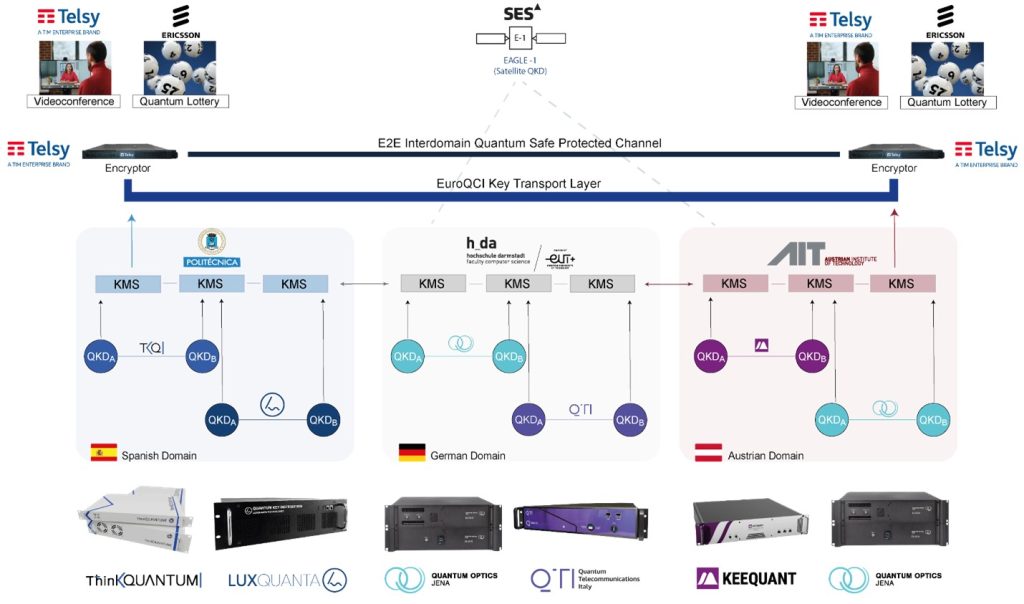
The “Mini EuroQCI” demo represents a significant milestone in the development of secure communication technologies. It features three independent QKD networks, or “domains,” each powered by different vendors and using distinct QKD protocols. These domains, labeled as “Spanish,” “German,” and “Austrian,” reflect the Key Management System providers rather than actual geographic locations. As the next step, the integration of Space QKD will be implemented using an emulator of the EAGLE-1 satellite.
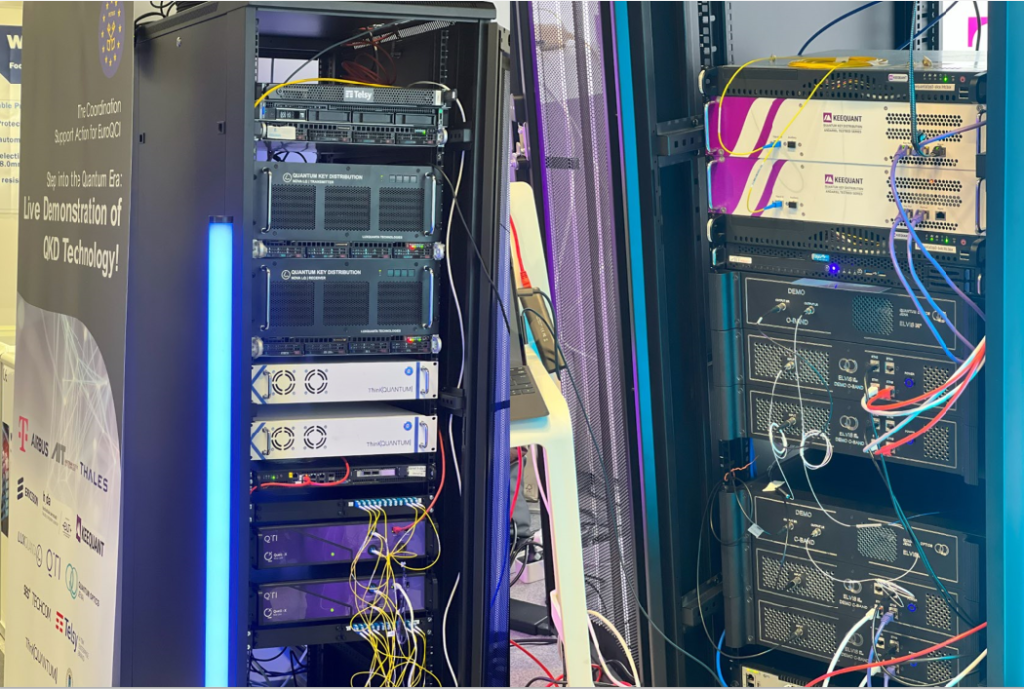
Key Features of the Demo
Five Key Advantages of the “Mini EuroQCI” Demo
Collaborative Effort Across Europe
This ambitious project brings together 11 leading partners across Europe, including:
Together, these partners showcase the interoperability, technical readiness, and vendor independence of QKD technology, marking a significant step forward in the European Union’s efforts to build a secure quantum communication infrastructure.
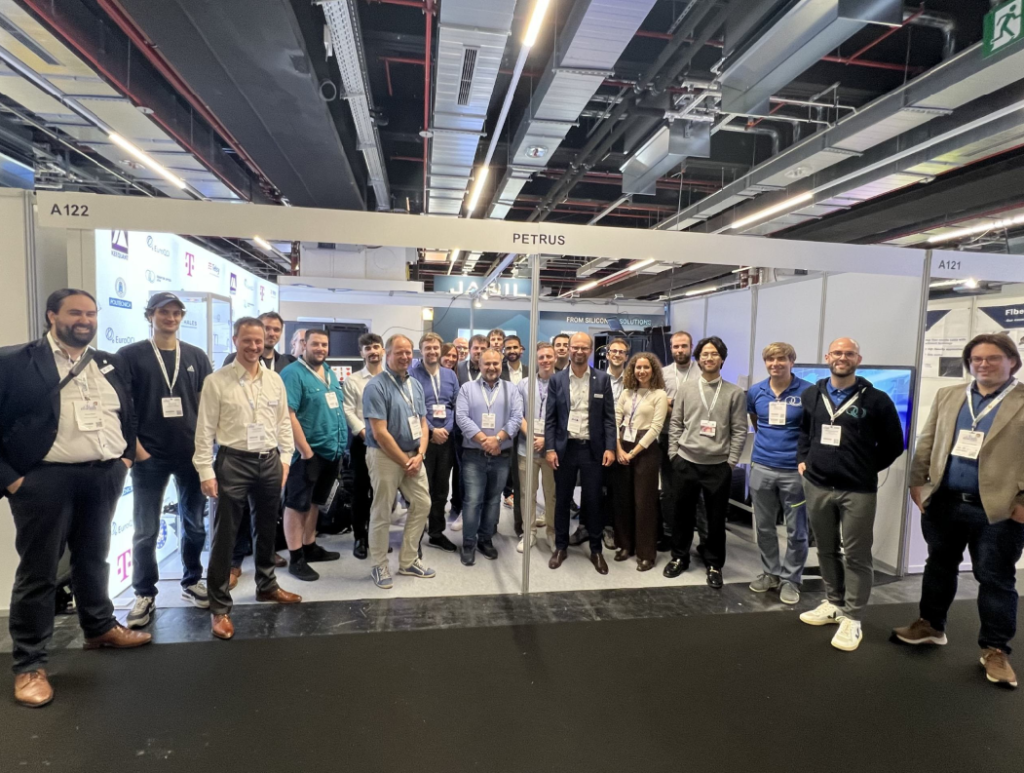
EuroQCI will establish a secure quantum network across the EU and its territories, combining fiber-based and satellite-based QKD solutions. All 27 EU Member States have committed to developing this infrastructure with the European Commission. As part of IRIS², EuroQCI will protect sensitive data, enhance infrastructure security, and support Europe’s cybersecurity strategy.
PETRUS is preparing for a fully functional EuroQCI by coordinating national QCIs, using EU-27 components, and adhering to European accreditation policies. PETRUS brings expertise in QKD technology, security, system design, and practical deployment. The three-step process includes capturing data, evaluating with EuroQCI studies, and educating national QCI contacts, all with transparent communication.
Europe’s leading telecommunication company offering mobile, fixed-line, internet, and digital TV services with a vast customer base in Europe and the United States.
European leader in quantum cryptography, coordinating major projects of the Quantum Technologies Flagship and contributing to EuroQCI initiative by advancing quantum communication devices.
Global pioneer in aerospace, specializing in commercial aircraft, helicopters, defense, and space sectors, innovating in quantum technologies. and communication systems. Airbus is leader in Europe of different quantum-secure communication system design and implementation activities for terrestrial and space segments.
Thales, a global technology leader in Defence & Security, Aeronautics & Space, and Digital Identity & Security, significantly invests in R&D, particularly in quantum technologies, to help make the world safer.
The Darmstadt University of Applied Sciences (h_da) is one of the largest universities of applied sciences in Germany. It offers its 14,500 students a practice-oriented and application-focused education in the fields of STEM, business and society, as well as architecture, media, and design. It is part of the European University Alliance “European University of Technology (EUT+)” .
Ericsson enables communications service providers and enterprises to capture the full value of connectivity. The company’s portfolio spans the following business areas: Networks, Cloud Software and Services, Enterprise Wireless Solutions, Global Communications Platform, and Technologies and New Businesses. It is designed to help our customers go digital, increase efficiency and find new revenue streams. Ericsson’s innovation investments have delivered the benefits of mobility and mobile broadband to billions of people globally. Ericsson stock is listed on Nasdaq Stockholm and on Nasdaq New York.
KEEQuant GmbH provides a comprehensive solution for quantum-secure communication by combining Quantum Key Distribution (QKD) with Post-Quantum Cryptography (PQC). Our approach enables a smooth transition to long-term quantum security through our flexible Key Management System (KMS). To enhance scalability and efficiency, we leverage advanced photonic integration in our QKD technology. Our mission is to permanently secure European infrastructure with robust QKD, KMS, and PQC solutions.
LuxQuanta commercializes Continuous Variable Quantum Key Distribution (CV-QKD) solutions that are easy to install while meeting the highest security requirements. LuxQuanta leads QUARTER European Consortium, determined to shape the future of quantum-secured communications.
Italian Quantum Key Distribution (QKD) company, offering industrial-grade systems and products for quantum networks, dedicated to unconditionally secure digital communications.
Leader in quantum key distribution systems based on entangled photon-pairs, offering cybersecurity solutions based on physical laws for enhanced security and multi-party networks.
SES is a provider of global content and connectivity solutions that owns and operates a multi-orbit GEO-MEO satellite fleet, and is a trusted partner to telecommunications companies, MNOs, governments, cloud service providers, and more around the world.
Leading provider of cybersecurity and cryptography solutions, Telsy is a key player in the field of Quantum Communications and Cyber Threat Intelligence, integrating its solutions with the expertise and technologies of its owned companies QTI and TS-Way.
ThinkQuantum offers QRNG and QKD solutions for terrestrial quantum networks and for the Space domain with Quantum satellite payloads, Optical Ground Stations and Quantum Receivers.
Pioneering quantum tech standardization, integration in optical networks and security infrastructures and coordinating major projects and building Madrid Quantum Communication Infrastructure, aligned with EuroQCI.
